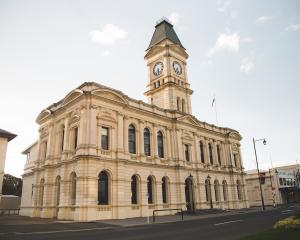
In January last year, the Christchurch-based company signed a memorandum with the Waitaki District Council that made launching its space planes from Oamaru Airport a possibility.
The Christchurch-based company had been working with the New Zealand Civil Aviation Authority on procedures and systems to fly its space planes, which are designed to send satellites into space on multiple flights a day, from conventional airports, without needing to shut down airspace and have exclusion zones, as is typical for rocket launches.
Late last year, it was granted an unmanned aircraft operator certificate, authorised under Civil Aviation rule part 102.
"That was a major, major milestone from many perspectives," Mr Powell said.
"In some ways, it was quite simple — we got our certificate. But what’s underneath that is massive, in terms of what it indicates we’ve done and achieved and worked towards, and also what we’ll be able to do in the future.
"It’s a very transformative step for Dawn, but also for the industry in New Zealand, and actually, globally as well. As far as we know, this is one of the first licences to operate UAVs [unmanned aerial vehicles] from a conventional airport without restricted air space or any penalty of air space users, which is a huge step forward for the industry and a huge demonstration, actually, of how New Zealand is really at the forefront of this type of regulation, this type of technology."
The company was still committed to trialling flights from Oamaru Airport, Mr Powell said.
"That’s still the plan we’re working towards. It’s all certainly still going ahead."
It was in talks with other airports around New Zealand, including Pukaki Airport, but they would not be used instead of Oamaru, he said.
"Right now, there’s four different locations we do different types of testing at. We do lots of different testing ... and that’s why it’s really important for us to be able to operate from Oamaru and Pukaki and all throughout — because these different locations serve different purposes and have different benefits and capabilities."
The first flights could take off this year.
"We’re doing lots and lots of testing at the moment ...
"There’s lots that we can’t really disclose publicly at the moment."
Covid-19 continued to be a challenge.
"We’ve kept going despite it, but it’s definitely a big challenge and continues to make things harder, even just stuff as simple as getting specialist parts or raw materials ... is certainly slower than we would like."











